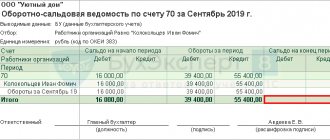Moral harm is the physical or moral suffering of an individual that was inflicted on him by any actions or, conversely, inaction, encroaching on any intangible benefits or non-property and property rights.
At the same time, current legislation provides for the possibility of compensation for moral damage caused in the manner regulated by current legislation, although many citizens do not know how this procedure is carried out and how much they can expect.
Dear readers! The article talks about typical ways to resolve legal issues, but each case is individual. If you want to find out how to solve your particular problem , contact a consultant:
8 (800) 700 95 53
APPLICATIONS AND CALLS ARE ACCEPTED 24/7 and 7 days a week.
It's fast and FREE !
That is why it is important to correctly understand what kind of compensation for moral damage the personal income tax provides and in what situations you can apply for this compensation.
Moral injury
We will find the definition of the term in the Resolution of the Plenum of the Supreme Court of the Russian Federation dated December 20, 1994 No. 10 “Some issues of application of legislation on compensation for moral damage” (clause 2). Moral harm is understood as moral or physical suffering caused by actions (inaction) that encroach on intangible benefits belonging to a citizen from birth or by force of law, or that violate the personal non-property or property rights of a citizen. Thus, the concept of moral damage does not apply to legal entities. It only has a business reputation (clause 11 of Article 152 of the Civil Code of the Russian Federation).
A common property of intangible goods is their inalienability. Intangible benefits include life and health, personal dignity, personal integrity, honor and good name, business reputation, inviolability of private life and home, personal and family secrets, freedom of movement, freedom to choose a place of stay and residence (clause 1 of Article 150 of the Civil Code RF).
Moral harm, in particular, may consist of moral feelings in connection with the loss of relatives, the inability to continue an active social life, loss of a job, disclosure of family or medical secrets, dissemination of untrue information discrediting the honor, dignity or business reputation of a citizen, temporary restrictions or deprivation of any rights, physical pain associated with injury, other damage to health, or due to illness suffered as a result of moral suffering. Please note: moral damage is not limited to damage to health.
Compensation for moral damage is provided for by both labor and civil legislation. Let's look at each of these areas.
Taxable or not
In accordance with the court decision, the company paid compensation to the individual for causing moral damage, but citizens do not understand whether this amount will be reduced by the amount of income tax. Representatives of the Ministry of Finance answered this question by publishing the corresponding letter No. 03-04-06/9-288 on September 25, 2012.
At the same time, paragraph 1 of Article 1064 of the Civil Code states that damage caused to the person or property of any citizen must be compensated in full by the person who caused the damage, and the obligation of compensation and its amount is established in court ok.
The Ministry of Finance separately notes that the amount that is paid in accordance with the court decision on compensation for damage caused relates specifically to compensation payments, that is, it falls under paragraph 3 of Article 217 of the Tax Code, and for this reason the taxation of such payments with income taxes individuals are not provided.
Compensation in labor relations
Based on Article 3 (Part 4) of the Labor Code of the Russian Federation, persons who believe that they have been discriminated against in the world of work have the right to apply to the court for compensation for material damage and compensation for moral damage. Generally speaking, Article 164 (Part 2) of the Labor Code characterizes compensation as a method of reimbursement of costs. But is it legitimate to equate moral and physical suffering with costs? On this basis, we doubt that payments for moral damages are compensation in the generally accepted sense.
Article 237 of the Labor Code establishes:
- moral damage caused to an employee by unlawful actions or inaction of the employer is compensated to the employee in cash in amounts determined by agreement of the parties to the employment contract;
- in the event of a dispute, the fact of causing moral damage to the employee and the amount of compensation for it are determined by the court, regardless of the property damage subject to compensation.
It follows from these provisions that compensation for moral damage can be carried out without going to court - by agreement between the employee and the employer.
However, in cases of dismissal without legal grounds or in violation of the established procedure for dismissal or illegal transfer to another job, it is the court that collects in favor of the employee monetary compensation for moral damage caused to him by these actions. This is stated in Article 394 (Part 9) of the Labor Code.
The court determines the amount of compensation for moral damage based on the specific circumstances of each case - taking into account the volume and nature of moral or physical suffering caused to the employee, the degree of guilt of the employer, other circumstances worthy of attention, as well as the requirements of reasonableness and fairness (clause 63 of the Resolution of the Plenum of the Supreme Court of the Russian Federation dated 03/17/2004 No. 2 “On the application by the courts of the Russian Federation of the Labor Code of the Russian Federation”). It is logical to extend this approach to cases of voluntary payment of compensation.
simplified tax system
Regardless of the chosen object of taxation, compensation for moral damage in case of illegal dismissal does not reduce the tax base (the amount of the single tax) when simplified. Such compensations are not included in the closed list of expenses given in paragraph 1 of Article 346.16 of the Tax Code of the Russian Federation, and are not mentioned as part of tax deductions in paragraph 3 of Article 346.21 of the Tax Code of the Russian Federation. Compensation for moral damage cannot be included in labor costs (subclause 6, clause 1, Article 346.16 of the Tax Code of the Russian Federation): its payment is not related to either the work schedule or working conditions, it is not provided for in labor or collective agreements. This means that it does not satisfy the conditions of Article 255 of the Tax Code of the Russian Federation (clause 2 of Article 346.16 of the Tax Code of the Russian Federation).
An example of how to take into account compensation for moral damage to an employee reinstated at work. The organization applies a simplification with the object “income minus expenses”
Employee of Alpha LLC V.K. Volkov was fired on November 26, 2015. He filed a lawsuit to declare the dismissal illegal. The court upheld the claim and decided to reinstate Volkov in his previous position as of February 2, 2021, and also to pay him compensation for moral damage in the amount of 5,000 rubles.
Based on the court decision, Alpha’s accountant made the following entries:
Debit 91-2 Credit 73 – 5000 rub. – compensation for moral damage to the employee has been accrued;
Debit 73 Credit 51 – 5000 rub. – compensation for moral damages was transferred to Volkov’s bank card.
Alpha's accountant did not include the compensation paid as expenses that reduce the single tax.
Civil compensation
In civil law relations, compensation for moral damage is also carried out in cash (clause 1 of Article 1101 of the Civil Code of the Russian Federation). But its size is determined exclusively by the court (clause 2 of Article 1101 of the Civil Code of the Russian Federation, letter of the Federal Tax Service of Russia dated May 16, 2012 No. ED-4-3/8057). Consequently, if compensation is paid to a citizen by agreement of the parties - for example, in the manner of pre-trial settlement of a dispute (clause 7, part 2, article 131 of the Code of Civil Procedure of the Russian Federation), then formally such an amount does not fall into the category of compensation established by the legislation of the Russian Federation. Take note of this.
How much can an injured citizen expect? Article 1101 (clause 2) of the Civil Code of the Russian Federation explains: the amount of compensation is determined depending on the nature of the physical and moral suffering caused to the victim, as well as the degree of guilt of the harm-doer in cases where guilt is the basis for compensation for harm. When determining the amount of compensation for harm, the requirements of reasonableness and fairness must be taken into account. The nature of physical and moral suffering is assessed by the court, taking into account the actual circumstances in which moral harm was caused and the individual characteristics of the victim.
Please note: moral damage caused to the consumer as a result of violation of his rights by the manufacturer (performer, seller, authorized organization or authorized individual entrepreneur, importer) is compensated according to the rules of Article 15 of the Law of the Russian Federation of 02/07/1992 No. 2300-1 “On the Protection of Consumer Rights”. This article expressly stipulates that the amount of compensation is determined by the court. Resolution of the Plenum of the Supreme Court of the Russian Federation dated June 28, 2012 No. 17 “On the consideration by courts of civil cases in disputes regarding the protection of consumer rights” (clause 45) explains: a sufficient condition for satisfying a claim is the established fact of a violation of consumer rights. Thus, the consumer does not have to specifically prove the presence of suffering. At the same time, the amount of monetary compensation collected for moral damages cannot be made dependent on the cost of the goods (work, service) or the amount of the penalty to be collected.
Who and in what situations can count on compensation for moral damage? Well, for example, a tourist who has suffered from the actions of a travel company (Article 6 of the Federal Law of November 24, 1996 No. 132-FZ “On the Fundamentals of Tourism Activities in the Russian Federation”). The insured person (Article 8 of the Federal Law of July 24, 1998 No. 125-FZ “On compulsory social insurance against industrial accidents and occupational diseases”). A citizen about whom the media has disseminated information that does not correspond to reality (Article 62 of the Law of the Russian Federation of December 27, 1991 No. 2124-1 “On the Mass Media”). Finally, any citizen as a subject of personal data (Article 8 of the Federal Law of July 24, 1998 No. 125-FZ “On compulsory social insurance against industrial accidents and occupational diseases”).
Example situation
In what case can an individual receive payments related to the violation of his rights? A typical example is a developer delaying the completion of housing construction.
In this case, in accordance with the shared construction agreement, the shareholder may demand a penalty. In addition, a citizen faces real costs associated with the need to rent housing; he can also demand reimbursement from the developer. In addition, an individual has the right to demand compensation for moral damage. To receive these payments you have to go to court, which means legal costs are inevitable.
Let us assume that in the situation under consideration, the court decided to satisfy all the claims of the shareholder, namely, it obliged the developer:
- pay the contractual penalty;
- compensate for the costs of rented housing;
- compensate for moral damage;
- reimburse legal costs.
The question arises: should personal income tax be paid on these amounts? And if so, who should transfer it to the budget? Let's look at what the Ministry of Finance says about this (letter No. 03-04-05/44154 dated June 27, 2018).
Income tax expenses
In connection with the assignment of compensation, the company causing moral damage bears costs. Do such expenses generate expenses for tax purposes?
This question must be answered in the negative. After all, such costs are generated by a violation of the constitutional rights and freedoms of man and citizen (Chapter 2 of the Constitution of the Russian Federation), that is, they are immoral in nature. Consequently, they do not meet the criteria of paragraph 1 of Article 252 of the Tax Code, although they were incurred in the course of carrying out activities aimed at generating income. This basis is specifically provided for in paragraph 49 of Article 270 of the Tax Code of the Russian Federation.
We emphasize: compensation for moral damage cannot be equated to compensation for damage caused. Consequently, subparagraph 13 of paragraph 1 of Article 265 of the Tax Code of the Russian Federation does not apply to it. This position is presented in letters of the Ministry of Finance of Russia dated March 19, 2010 No. 03-03-06/4/22 and the Federal Tax Service of Russia dated May 16, 2012 No. ED-4-3/8057.
note
An employee has the right to demand compensation for moral damage even for delayed wages (clause 63 of the Resolution of the Plenum of the Supreme Court of the Russian Federation dated March 17, 2004 No. 2, appeal ruling of the Sverdlovsk Regional Court dated November 22, 2016 in case No. 33-20855/2016).
The fact is that the legislation connects damage with the presence of expenses for the injured party (clause 13 of the Resolution of the Plenum of the Supreme Court of the Russian Federation dated June 23, 2015 No. 25 “On the application by courts of certain provisions of Section I of Part One of the Civil Code of the Russian Federation”). In the case of moral damage, such is not seen. Moreover, the legislator specifically stipulates: compensation for moral damage is made regardless of the property damage subject to compensation (part 2 of article 237 of the Labor Code of the Russian Federation, paragraph 3 of article 1099 of the Civil Code of the Russian Federation).
True, the resolution of the Arbitration Court of the East Siberian District dated June 4, 2015 No. F02-1262/2015 in case No. F02-1612/2015 presents the opposite conclusion. The arbitrators found that subclause 13 of clause 1 of Article 265 of the Tax Code of the Russian Federation does not specify what kind of damage is subject to compensation - material or moral, and does not contain a prohibition on including the costs of compensation for moral damage in non-operating expenses. Although this resolution was supported by the ruling of the Supreme Court of the Russian Federation dated August 27, 2015 No. 302-KG15-9847, the latter did not examine the issue of recognition of compensation for moral damage in expenses.
A similar conclusion is presented in the resolution of the Arbitration Court of the Ural District dated July 30, 2015 No. F09-5159/15.
In this regard, let us ask ourselves: is there an official term “moral damage”? Yes. In particular, it is presented in the Law of the Russian Federation dated July 21, 1993 No. 5485-1 “On State Secrets” (Article 7) and in the Decree of the President of the Russian Federation dated June 14, 2012 No. 851 “On the procedure for establishing levels of terrorist danger...” But specific situations, which regulate these sources of law are not typical for the activities of commercial organizations. At the same time, this example shows: you can try to claim a violation of your rights even in doubtful cases. The inconsistency of your position may go unnoticed.
So, on the issue of accounting for compensation in expenses, we are on the side of the Russian Ministry of Finance, and do not share the position of the above-mentioned arbitration courts. But for personal income tax it’s the other way around.
How tax is calculated and paid
Organizations that pay citizens income that is subject to taxation are, by virtue of Article 226 of the Tax Code of the Russian Federation, their tax agents . The obligation to calculate, withhold and pay tax on such income to the budget rests with the agents.
Thus, the developer must withhold personal income tax from the amount of the penalty due to the citizen and transfer it to the budget. Note that the court in its decision can indicate exactly what amount should be paid to the citizen, and what amount should be withheld and transferred to the budget in the form of personal income tax. But it happens that the court does not allocate tax from the amount of the penalty.
If the tax agent cannot withhold the tax on his own, he must report this to the tax office. In this case, you should indicate the amount of income from which tax was not withheld, as well as the amount of the tax itself. The tax agent must send a similar message to the citizen.
How can an individual pay personal income tax in this case? The procedure is defined in paragraph 6 of Article 228 of the Tax Code of the Russian Federation. The tax authority will draw up a tax payment notice and send it to the taxpayer. He is obliged to pay the due amount no later than December 1 of the year following the expired tax period.
Personal income tax
According to the author, the issue of calculating personal income tax on the amount of compensation for moral damage has not been properly studied. Let's try to fill this gap.
Taxable income of an individual is recognized as economic benefit in cash or in kind, taken into account if it is possible to evaluate it and to the extent that such benefit can be assessed (clause 1 of Article 41 of the Tax Code of the Russian Federation). Does compensation for moral damage generate economic benefits? The court answered this question in the negative (clause 7 of the Review of the practice of courts considering cases related to the application of Chapter 23 of the Tax Code of the Russian Federation, approved by the Presidium of the Supreme Court of the Russian Federation on October 21, 2015). The judges did not provide a detailed argument. But let’s think about it: in essence, this compensation is a “payment” for suffering. To classify it as an economic benefit to an individual is immoral. The victim receives a sum of money not due to economic relations with the harm-doer.
Meanwhile, regulatory authorities consider this compensation as income that can be exempt from taxation on the basis of paragraph 3 of Article 217 of the Tax Code of the Russian Federation - as a compensation payment established by the current legislation of the Russian Federation. Officials interpret compensation for moral damage either as compensation for harm caused to health (letters from the Ministry of Finance of Russia dated November 11, 2016 No. 03-04-06/66353, Federal Tax Service of Russia dated March 5, 2018 No. GD-4-11 / [email protected] ), or as payment related to the performance of labor duties (letter of the Ministry of Finance of Russia dated November 11, 2016 No. 03-04-05/66167). At the same time, they invariably emphasize that only compensation ordered by the court is exempt from personal income tax.
We cannot agree with these approaches. Our objections are as follows.
First of all, moral harm is not equivalent to harm to health. Federal Law of November 21, 2011 No. 323-FZ “On the fundamentals of protecting the health of citizens in the Russian Federation” defines health as a state of physical, mental and social well-being of a person, in which there are no diseases, as well as disorders of the functions of organs and systems of the body. The rules for determining the severity of harm caused to human health were approved by Decree of the Government of the Russian Federation dated August 17, 2007 No. 522. Based on the Rules (clauses 1-3), harm to health is understood as a violation of the anatomical integrity and physiological function of human organs and tissues as a result of exposure to physical, chemical, biological and mental environmental factors. Harm caused to health is determined based on the results of a forensic medical examination depending on the degree of its severity (severe harm, moderate harm and minor harm). However, this approach does not apply to claims for compensation for moral damage. However, officials insist on the “medical” nature of “moral” compensation even in relation to payments made in accordance with decisions of the European Court of Human Rights (letter of the Ministry of Finance of Russia dated October 3, 2013 No. 03-04-07/41151, Article 41 of the Convention on protection of human rights and fundamental freedoms).
On the other hand, the position according to which only compensation for moral damage caused to employees is exempt from taxation is discriminatory. It violates the basic principles of the legislation on taxes and fees (clauses 1, 2, article 3 of the Tax Code of the Russian Federation). The degree of suffering does not depend on the circumstances under which it was caused - within the framework of labor or civil law relations.
note
In cases where the interests of a citizen require it, intangible benefits belonging to him can be protected, in particular, by the court recognizing the fact of violation of his personal non-property right, publishing a court decision on the violation, as well as by suppressing or prohibiting actions that violate or create a threat of violation personal non-property right or encroaching or creating a threat of encroachment on an intangible benefit (clause 2 of article 150 of the Civil Code of the Russian Federation).
For the same reasons, exemption from personal income tax cannot be made dependent on who exactly awarded the compensation - the court or the employer (even though the latter is permitted by law). Moreover, by resolution of the Federal Antimonopoly Service of the West Siberian District dated June 13, 2006 No. F04-3386/2006 (23325-A27-31), compensation for moral damage paid to the relatives of deceased workers by agreement of the relatives with the employer was exempt from personal income tax.
We noted above that the concept of compensation implies reimbursement of material costs. But in connection with moral damage there are none. As a result, it seems that the term “compensation for moral harm” should be considered as indivisible and integral, without tearing out the concept of “compensation” from it. In our opinion, the problem deserves a legislative settlement or, as a preliminary option, a decision at the level of the Constitutional Court of the Russian Federation. In the meantime, irremovable doubts and ambiguities in tax legislation should be interpreted in favor of the taxpayer and the tax agent, without punishing the latter (Clause 7, Article 3, Article 123 of the Tax Code of the Russian Federation).
Please note: the unregulated taxation of compensation for moral damage allows employers to pay injured employees (based on an agreement of the parties) amounts limited only by the financial capabilities of the company (!). How can tax inspectors not worry?
The court's decision
In accordance with the general rules, all payments that were accrued as a result of a court decision in the process of labor disputes must be subject to personal income tax, and a similar rule is prescribed in paragraph 3 of Article 217 of the Tax Code, since in this case even former employers are recognized as tax agents, and are responsible for calculating, withholding and transferring the amount of tax to the state budget.
On the one hand, in accordance with Article 226 of the Tax Code, a company that represents the source of profit for a certain individual must withhold personal income tax, but on the other hand, if payment is made on the basis of a court decision, the company will need to accrue to the individual the amount which is stated in the decision of the judicial authority. The decision itself may indicate different wording, and in particular, the amount of personal income tax may be allocated or completely absent.
Article 217. Income not subject to taxation (exempt from taxation)
In accordance with the official position stated by representatives of the Ministry of Finance, the Tax Service and the Arbitration Court, if the judicial body in the process of making its decision did not separately allocate the amount of tax, then in this case the tax agent has the right not to withhold it from the transferred payment.
Article 226. Peculiarities of tax calculation by tax agents
In such a situation, the company will need to send a notification to the Tax Service that tax withholding is impossible, and this must be done before January 31 of the next year by filing a declaration in Form 2-NDFL.
What are the prescribed insurance premiums?
In accordance with Law No. 4015-1, published on November 27, 1992, insurance is the protection of property interests in the event of certain circumstances arising from financial funds that are created from the contributions they pay.
In this case, those property interests that do not contradict current legislation are considered as insurance objects and relate to:
- health, life, ability to work and pension provision of insured persons;
- use, storage and disposal of any property;
- compensation for damage caused by the insured to property or the person of citizens and legal entities.
Compulsory social insurance provides for compensation for damage caused to the health and life of the insured person in the process of performing his assigned work duties, as well as payment of compensation to the insured person for all types of support, including payment of costs necessary for social, medical and professional rehabilitation.
In this case, the insured persons have the right to demand compensation for damage caused in accordance with current legislation in the part that exceeds the available insurance coverage. Compensation for moral damage in this case is carried out by the person who caused it, and this is done in the part of the funds that exceeds the amount of insurance.
Income tax on sick leave is withheld based on Art. 217 of the Tax Code of the Russian Federation “Income not subject to taxation”.
See 3-NDFL adjustment deduction.
Find out from the article the name of the source of payment in 3-NDFL.
We study the documents and determine the amount of payment
The basis for paying certain amounts to a citizen may be:
- court decision;
- settlement agreement;
- performance list;
- a bailiff's order, according to which your organization must transfer money to an individual.
Any of these documents must indicate the amount due to be received by the citizen (plaintiff). And you must strictly comply with the court's decision. Thus, two options are possible.
OPTION 1 (rare). The document separately highlights the amount that you must pay specifically to the citizen, and separately the amount of personal income tax that you, as a tax agent, must withhold and transfer to the budget. The lawyers of your organization could have insisted on such wording in court. Then you transfer to the citizen what you owe him, and to the budget - personal income tax.
OPTION 2 (life). The document says nothing about personal income tax. Then you transfer the entire specified amount to the citizen without any deductions. Both the Ministry of Finance and the tax service agree with this, and Letters of the Ministry of Finance dated January 24, 2013 No. 03-04-06/9-23; Federal Tax Service dated October 28, 2011 No. ED-4-3/17996. However, local inspectors sometimes take a different position - and then the courts “correct” them, protecting the taxpayer in Resolution of the FAS ZSO dated September 26, 2011 No. A27-16788/2010; FAS MO dated July 26, 2012 No. A40-67788/11-140-297; FAS UO dated May 13, 2009 No. F09-2927/09-S3, dated October 14, 2010 No. F09-8263/10-S2; FAS North Caucasus Region dated August 18, 2010 No. A18-822/2008.
Organizations often make the following mistake: if they see that the amount paid to a citizen according to the rules of Chapter. 23 of the Tax Code of the Russian Federation is taxable income, they withhold personal income tax from it and transfer it to the budget. Thus, they try to fulfill the duties of a tax agent. However, as a result, they pay the individual an amount less than what was awarded by the court. That is, they do not comply with the court decision and paragraph 2 of Art. 13 Code of Civil Procedure of the Russian Federation. This leads to the fact that a citizen has a reason to contact a bailiff. And then you will have to not only pay the missing amount, but also pay an execution fee. Moreover, the reference to the fact that the missing part of the money was paid to the budget as personal income tax will not work. You will have to pay the citizen the missing amount, and then (if this is not your employee) deal with the return of the amounts overpaid to the budget.
By the way, we would like to draw your attention to the recent Letter of the Ministry of Finance and Letter of the Ministry of Finance dated 02/18/2013 No. 03-04-06/4224. In it, the financial department indicated that:
- you pay income to a citizen on the basis of a court decision in which personal income tax is not allocated, then you need to pay him the full amount specified in the decision;
- If you pay income on the basis of a settlement agreement, which also does not include personal income tax, then it is necessary to withhold tax and transfer it to the budget. The Ministry of Finance believes that in this case there is no “impossibility to withhold” personal income tax.
However, we allow ourselves to disagree with the Ministry of Finance. The fact is that the settlement agreement is approved not only by the parties, but also by the court, part 2 of Art. 138, part 4 art. 139 Arbitration Procedure Code of the Russian Federation. If the settlement agreement is not voluntarily executed in the manner and within the time limits provided for by this agreement, then it is subject to forced execution of Parts 1, 2 of Art. 142 Arbitration Procedure Code of the Russian Federation. That is, the procedure for executing a settlement agreement is the same as a court decision. For example, having not received all the money under the settlement agreement, the plaintiff can apply to the court for a writ of execution, take this writ to your bank, and it must immediately transfer the money from your current account to the citizen’s account.
ADVICE
If you enter into a settlement agreement with a citizen under which you pay him income subject to personal income tax, then it is better to separately reflect in it:
- the amount of personal income tax that must be withheld and transferred to the budget;
- the amount of income that must be transferred to the citizen.
After all, you have the opportunity to influence the content of the settlement agreement.
But in any case, with option 2, you need to determine whether the amount paid to the citizen is taxable income for personal income tax purposes or not.
(1) For failure to withhold personal income tax and its failure to transfer it to the budget, the inspectorate may fine 20% of the non-withheld amount of personal income tax, Art. 123 Tax Code of the Russian Federation
(2) Delay in submitting this information to the inspectorate will result in a fine of 200 rubles. subp. 2 p. 3 art. 24, paragraph 5, art. 226, art. 216, paragraph 1, art. 126 Tax Code of the Russian Federation
Please note: even if the bank wrote off money from your organization’s account in favor of a citizen (based on a writ of execution it received from the citizen) and this is income subject to personal income tax, you will have to either submit a certificate to the inspectorate or withhold tax from other income of the individual.
Disputed payments
If, by a court decision, you pay your employee wages, compensation for unused vacation, or other clearly taxable income (for example, penalties, fines), no questions arise. But there are payments with which everything is not so simple.
Payment for moral damages
This amount is not subject to tax. The Ministry of Finance adheres to this point of view - it considers compensation for moral damage as compensation provided for by law and associated with “compensation for harm” clause 3 of Art. 217 Tax Code of the Russian Federation; Letters of the Ministry of Finance dated September 25, 2012 No. 03-04-06/9-288, dated August 28, 2012 No. 03-04-05/6-1009. After all, the obligation of such compensation, the amount of which is determined by the court, is directly stated in the Civil Code, paragraph 1 of Art. 1064, articles 151, 1101 of the Civil Code of the Russian Federation.
Reimbursement of state fees and legal costs
The reimbursement of legal expenses (for payment of state fees, legal fees) that the plaintiff receives can hardly be fairly regarded as his income. After all, he does not receive any economic benefit (that is, income) under Articles 41, 209 of the Tax Code of the Russian Federation. A citizen receives the same amount as he spent, and sometimes even less - after all, courts often limit the reimbursed expenses for paying for the services of a representative (lawyer, lawyer) to a certain amount.
Some people use the recommendations of the Ministry of Finance to annoy the plaintiff who won the court - they submit a 2-personal income tax for him, although he is not obliged to pay tax
- economic benefit (income) in this situation is “receipt of legal services, the costs of which are fully or partially compensated by the other party to the civil process.” Moreover, the financial department is not at all embarrassed that the citizen first paid for these “legal services” himself, defending his violated rights;
- reimbursement of legal expenses is not included in the closed list of compensation payments exempt from personal income tax, clause 3 of Art. 217 Tax Code of the Russian Federation.
Fortunately, there are court decisions that do not agree with the position of the inspectors - they do not consider reimbursement of expenses to a citizen as his income. Resolution of the Federal Antimonopoly Service of the Eastern Military District dated August 2, 2010 No. A29-10481/2009. And not all tax specialists support the position of the financial department.
FROM AUTHENTIC SOURCES
“Compensation payments related to reimbursement to individuals of any types of expenses are not subject to personal income tax taxation in cases provided for by current legislation, clause 3 of Art. 217 Tax Code of the Russian Federation.
The court orders the party in whose favor the decision is made to reimburse the other party for all legal costs incurred in the case. Art. 98 Code of Civil Procedure of the Russian Federation. In particular, the state fee, the cost of paying for the services of representatives (lawyers) clause 1 of Art. 88, art. 94 Code of Civil Procedure of the Russian Federation. Thus, amounts of payments for the purpose of reimbursement of any documented expenses and expenses recognized by the court as necessary, including state duties, are exempt from taxation. This position is given in the Letter of the Federal Tax Service of Russia dated 09/08/2010 No. ШС-07-3/238 ".
However, not all organizations want to take risks, believing that it is safer to listen to the request of the Ministry of Finance. Especially when it comes to reimbursement of legal expenses for non-employees. After all, all that is required of the organization is to inform the inspectorate about the impossibility of withholding personal income tax, and to the citizen himself - about the payment of taxable income.
By the way, such “letters” become a way of small revenge on the part of organizations that lost in court. It seems that the Ministry of Finance listened and did something nasty to the plaintiff - let him deal with his tax office himself.
It’s good that no one thought of including in taxable income the amounts returned to the citizen by court decision that he had previously paid to the organization as an advance. After all, in this case there is definitely no economic benefit. Therefore, there is no need to calculate personal income tax, nor to inform the inspectorate about the impossibility of withholding tax.
And finally, let us remember that if you pay some amounts not to your employee, but to a citizen with whom you have neither an employment nor any civil law contract for the provision of services (performance of work), then insurance There is no need to accrue contributions for such payments under Part 1 of Art. 7 of the Law of July 24, 2009 No. 212-FZ. Moreover, regardless of whether such payment is the citizen’s income or not.








